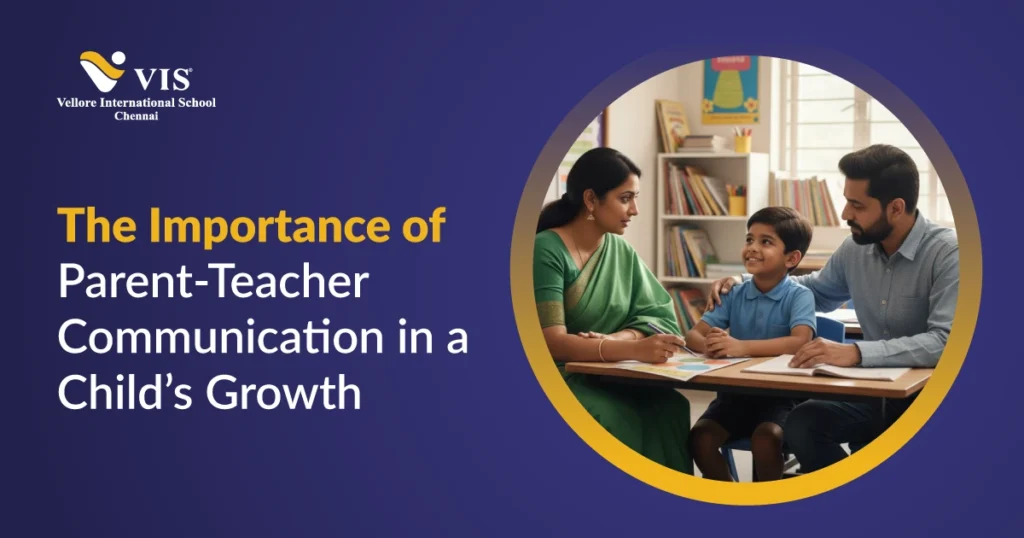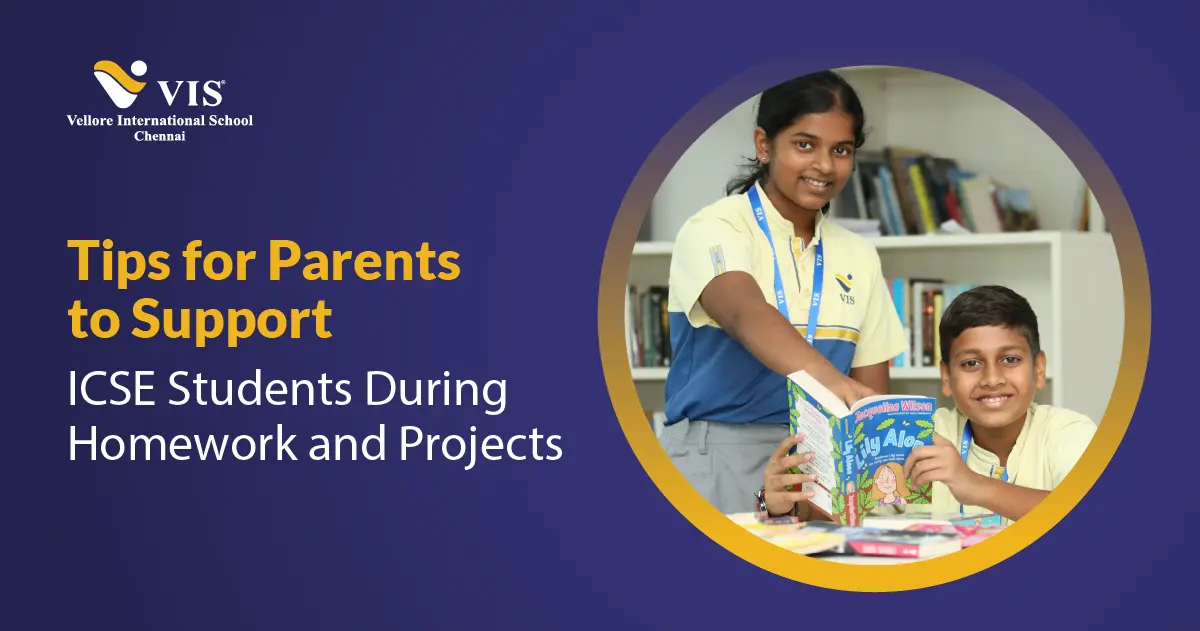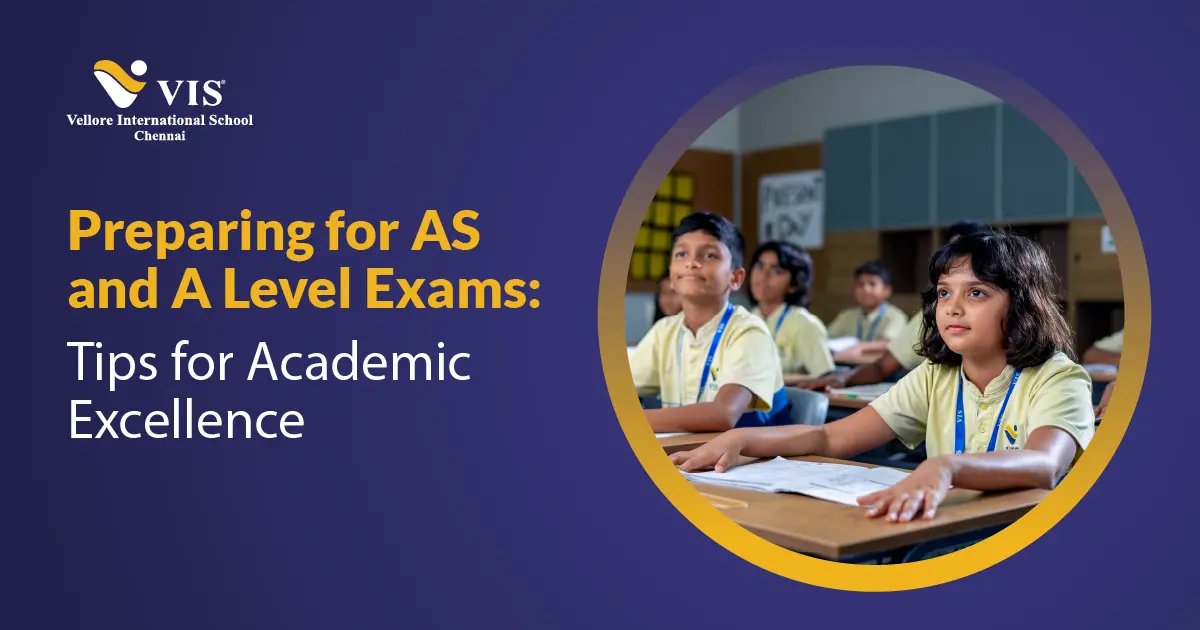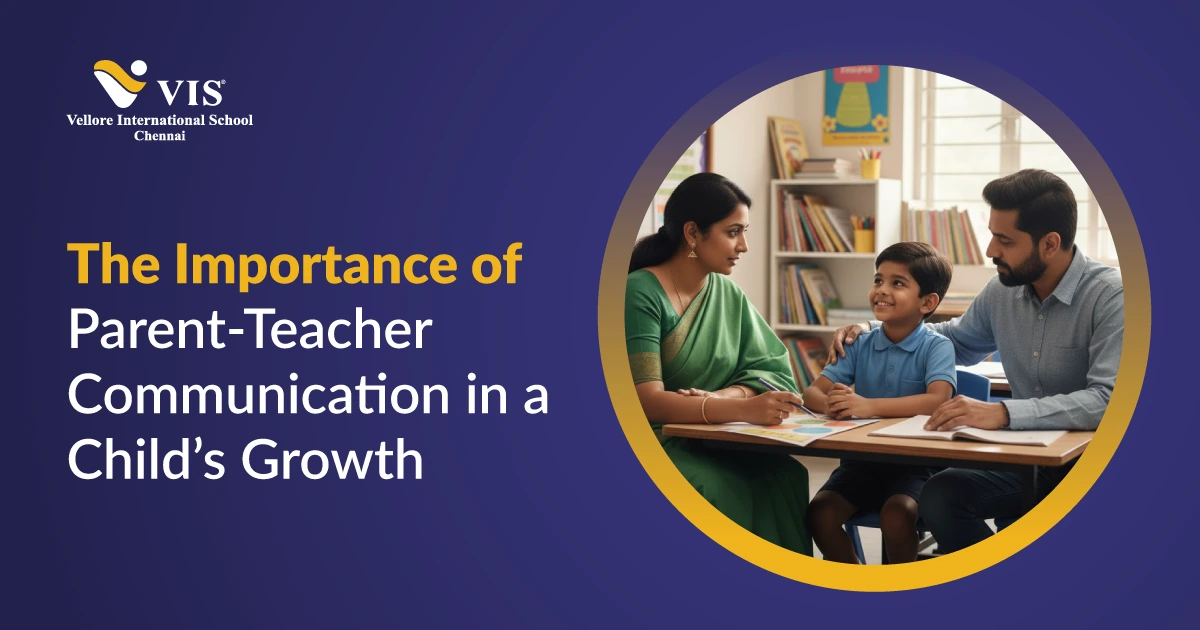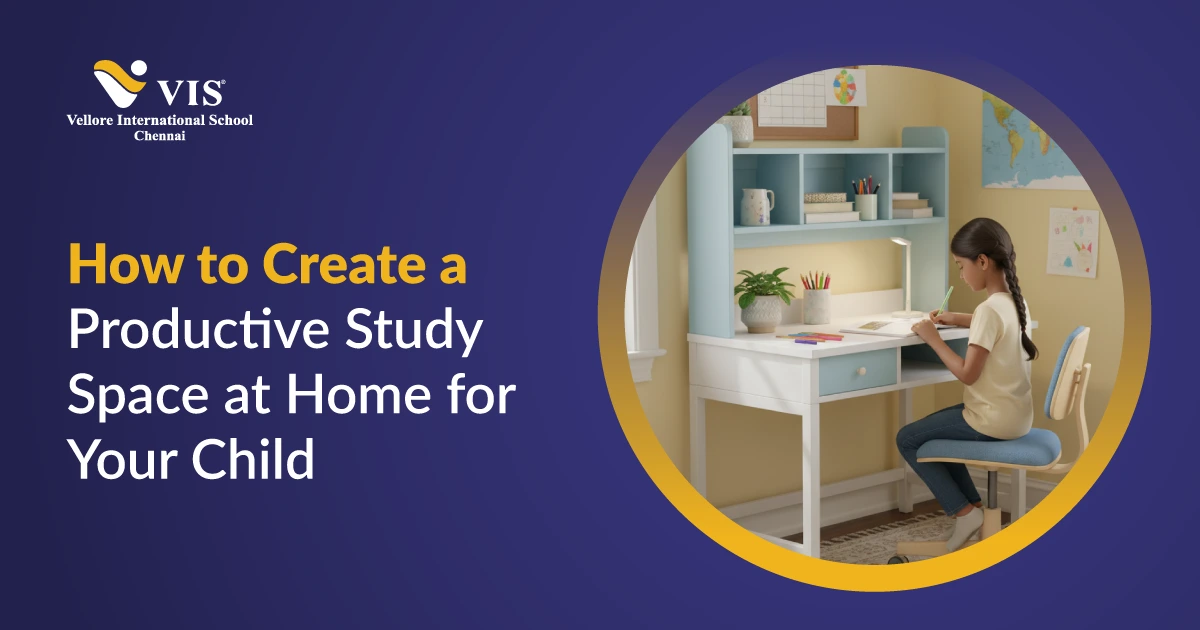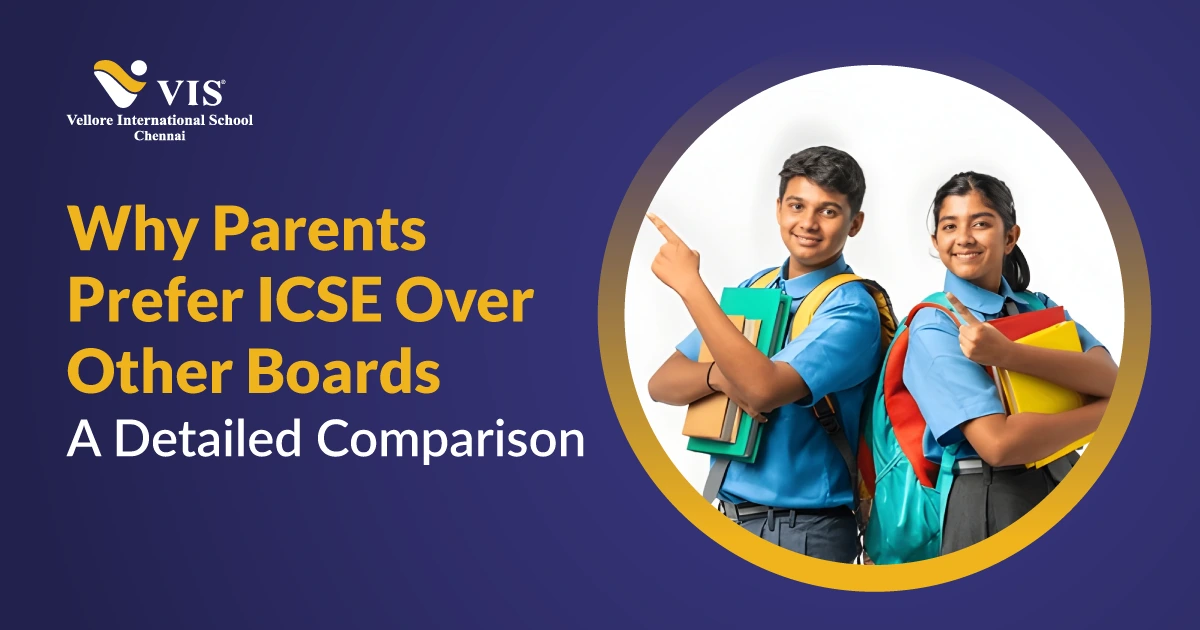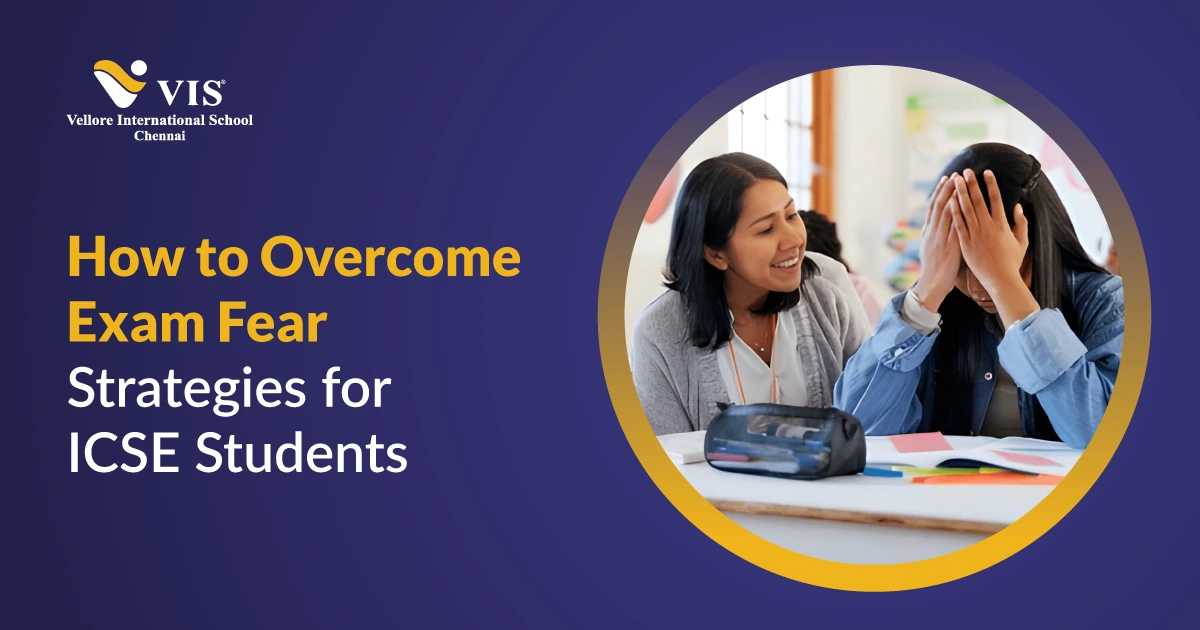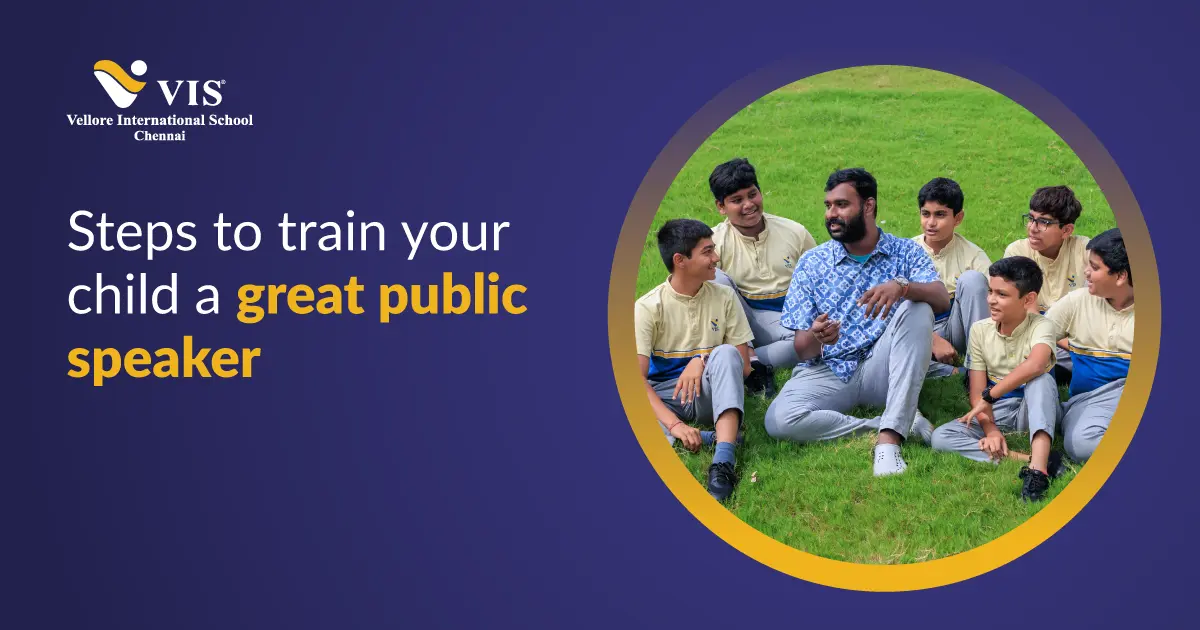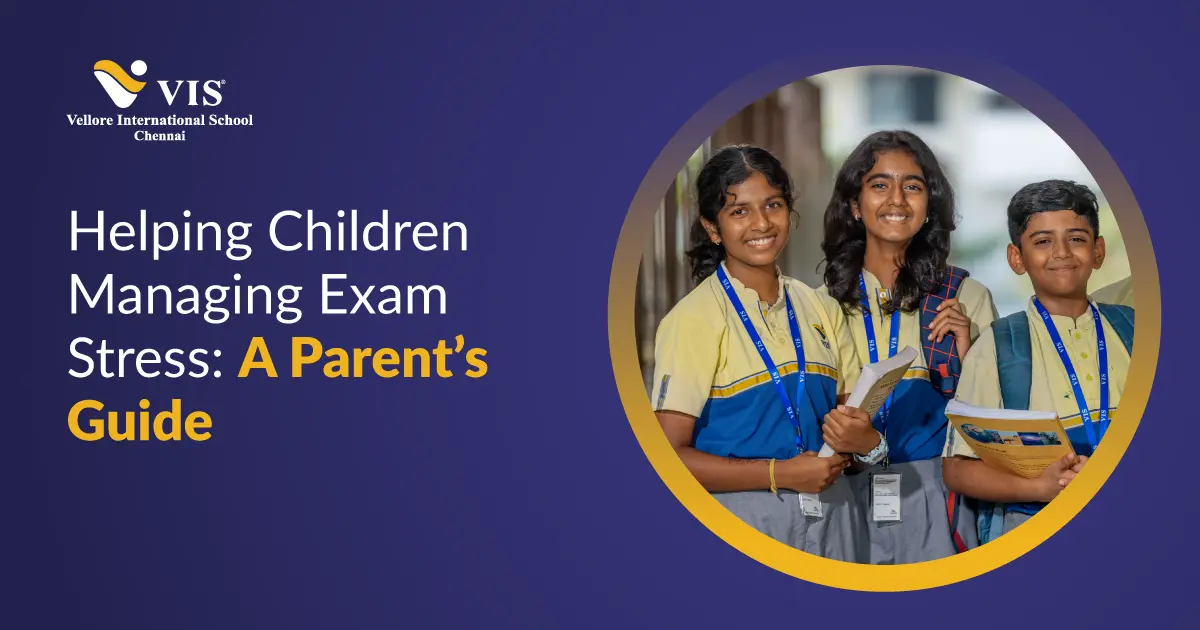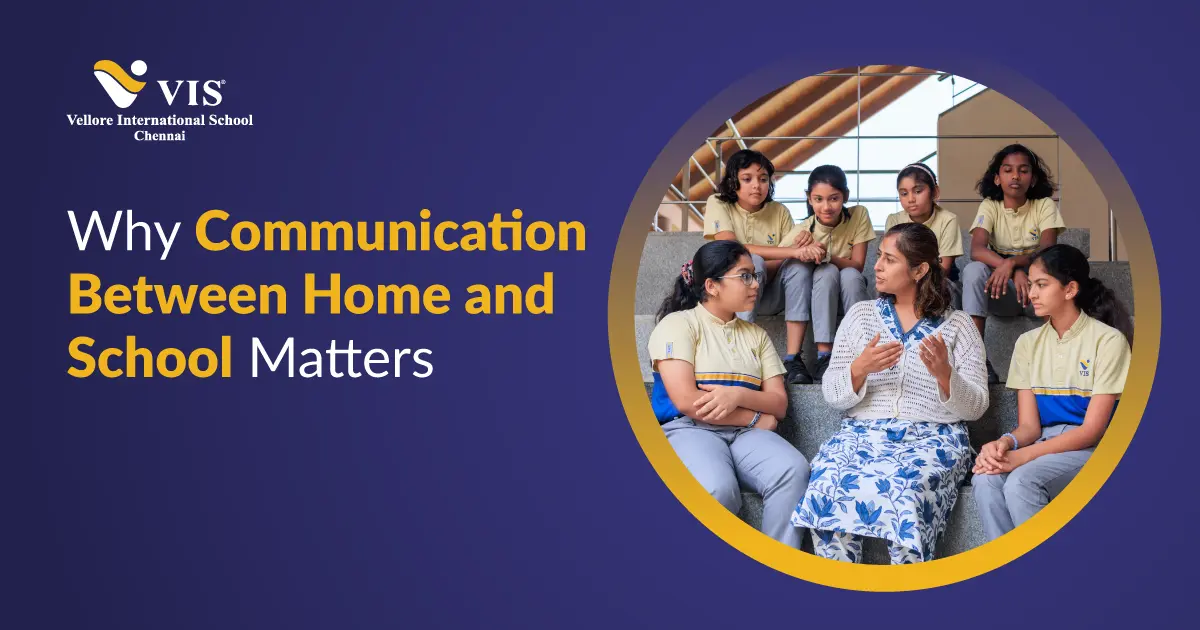A child’s educational journey is a shared responsibility between schools and families. While schools provide structured learning environments, parents shape values, motivation, and emotional support. Parent teacher communication importance acts as the bridge that connects these two powerful influences in a child’s life.
When schools and families communicate effectively, children thrive academically, emotionally, and socially. In this blog, we’ll explore why open communication between parents and teachers matters in a child’s education.
Why Parent-Teacher Communication Matters
The foundation of a child’s growth depends on strong partnerships. Parent teacher communication importance lies in creating consistent expectations between home and school. When parents and teachers collaborate, they share insights about a child’s strengths, struggles, and personality traits. This holistic understanding allows both to support the child better.
For example, a teacher might observe that a student struggles to focus in math, while parents might reveal that the child excels with practical activities at home. Through this mutual exchange, strategies can be tailored, turning potential learning gaps into growth opportunities.
Open communication also builds trust. Parents feel more confident in the school’s approach, and teachers feel supported rather than criticised. This trust forms the emotional backbone of the child’s learning environment.
The Role of Parents in Child’s Education
The role of parents in child’s education extends far beyond homework help. Parents set the tone for how children view learning. When parents show interest in school activities, value education, and celebrate achievements, children internalise these attitudes. Key aspects of the parental role include:
- A quiet, organised study space at home encourages focus.
- Asking open-ended questions keeps children mentally engaged.
- Teaching children to manage time and complete assignments builds independence.
- Children imitate parents. Demonstrating a love for reading or curiosity about the world inspires similar habits.
When combined with consistent teacher input, this parental involvement creates a strong learning ecosystem.
Parent Involvement Beyond Academics
Parent teacher communication isn’t limited to academics. Cultural events, sports days, exhibitions, and volunteer activities offer parents a chance to engage in their child’s school life. These moments build community spirit and deepen parent teacher bonds.
Schools that invite parents to participate in co-curricular activities see stronger support systems. Children feel proud when their parents are visibly involved, reinforcing the value of education and community.
Effective Parent Teacher Meetings: The Key to Success
One of the most powerful ways to build partnerships is through effective parent teacher meetings. These meetings go beyond report cards, they’re opportunities for meaningful dialogue. For a meeting to be truly effective:
- Preparation is Key: Teachers should prepare student progress data, and parents should come with observations and questions.
- Two-Way Communication: Meetings should not be lectures but conversations.
- Actionable Outcomes: Both parties should leave with clear next steps to support the child.
Schools that structure their meetings around collaboration see a remarkable difference in student performance. These sessions are strategic planning discussions centred around the child.
Teachers’ Perspective: What They Need from Parents
Understanding the teachers’ perspective is essential to strengthen parent teacher communication importance. Teachers are are mentors who observe a child’s academic and emotional growth closely. Here are four key areas teachers value:
1. Open and Respectful Communication
Teachers highly appreciate parents who communicate regularly, honestly, and with mutual respect. Open dialogue allows teachers to share academic updates and address concerns early. When parents listen actively and respond thoughtfully, effective parent teacher meetings become meaningful, building trust and teamwork.
2. Reinforcement of Classroom Rules at Home
Consistency is key to a child’s development. When parents reinforce school rules and behavioural expectations at home, it eliminates confusion for the child. This alignment strengthens discipline and highlights the role of parents in child’s education, ensuring smoother classroom experiences.
3. Support for Learning Routines
Parents who encourage reading, assist with homework, and create structured study times make a significant difference. These efforts extend classroom learning and demonstrate to children that education is valued both at home and school, reflecting the true parent teacher communication importance.
4. Trust and Insight Sharing
Teachers value parents who trust their expertise while sharing relevant home observations. This balance allows teachers to personalise learning strategies. When parents respect teachers’ methods and contribute insights, effective parent teacher meetings lead to collaborative solutions that benefit the child’s overall growth.
Parents’ Perspective: What They Expect from Teachers
A strong school – home partnership is built on mutual respect and understanding. From a parent’s point of view, teachers play a crucial role in shaping a child’s confidence and curiosity. When teachers align with parents’ expectations, parent teacher communication importance becomes more meaningful and impactful. Here are four key areas parents value the most:
1. Timely and Transparent Updates
Parents deeply appreciate teachers who share regular academic updates, classroom behaviour reports, and upcoming plans. If through digital platforms, report cards, or quick notes, these timely updates allow parents to stay informed and actively support their child’s progress.
Clear communication ensures that effective parent teacher meetings are more focused and productive.
2. Open and Non-Judgmental Listening
Parents expect teachers to genuinely listen to their concerns, If it is academic, emotional, or behavioural. When teachers listen without judgment, parents feel heard and respected. This trust encourages honest dialogue, which is essential for the role of parents in child’s education to be fully realised.
3. Practical Guidance for Home Support
Parents often look to teachers for realistic, actionable tips to continue learning at home. If it’s suggesting extra reading, interactive exercises, or learning techniques, practical advice strengthens the learning loop between school and home, highlighting parent teacher communication importance in daily routines.
4. Acknowledging Individual Strengths and Challenges
Every child is unique. Parents value teachers who notice and nurture their child’s specific abilities while addressing challenges thoughtfully. This personal touch turns meetings into meaningful collaborations and reinforces the role of parents in child’s education as equal partners in growth.
Practical Tips for Parents to Communicate Better
- Attend all effective parent teacher meetings punctually.
- Keep communication respectful and focused on the child’s development.
- Take notes during meetings to follow up later.
- Express gratitude for teachers’ efforts.
- Share honest observations from home without exaggeration or criticism.
These habits make a significant difference in how teachers perceive parental involvement.
Practical Tips for Teachers to Engage Parents
- Start communication on a positive note; don’t wait for problems.
- Personalise messages to show genuine care for each child.
- Provide actionable suggestions, not vague advice.
- Be consistent and transparent in sharing updates.
- Encourage questions and appreciate feedback.
Such efforts demonstrate a school’s commitment to parent teacher communication importance.
Role of Technology in Enhancing Parent-Teacher Communication
Modern technology has made it easier than ever to maintain meaningful communication. Online portals, emails, messaging apps, and virtual meetings keep parents updated in real time.
- Instant Updates: Parents receive alerts about assignments, test results, and attendance.
- Virtual Meetings: No more scheduling nightmares, parents can join from anywhere.
- Two-Way Messaging: Quick questions and clarifications can be handled efficiently.
- Data Sharing: Academic progress charts and behavioural reports can be shared securely.
By integrating these tools, schools strengthen the role of parents in child’s education through constant engagement.
Parent-Teacher Communication at Vellore International School
At Vellore International School (VIS), the partnership between parents and teachers is considered central to a child’s growth. The school encourages frequent, structured interactions that go beyond traditional report card meetings.
Parents are invited to attend orientation sessions, interactive workshops, and individualised meetings where teachers provide detailed feedback on both academic and personal development. VIS understands parent teacher communication importance in creating a nurturing learning environment.
Teachers regularly share progress updates, celebrate student achievements, and provide parents with strategies to extend learning at home. This culture of collaboration ensures that every child benefits from unified guidance.
Final Thoughts
The role of parents in child’s education is more crucial than ever. Teachers guide students through structured learning, but parents provide emotional grounding and motivation. When these two forces unite through strong communication, children flourish.
The parent teacher communication importance lies in the number of meetings and in the quality of collaboration. Schools like VIS exemplify how structured communication can transform education into a holistic experience. By embracing effective parent teacher meetings and maintaining mutual respect, parents and teachers can shape a brighter future for every child.
FAQs
1. Why is parent teacher communication so important for a child’s growth?
Parent teacher communication creates a strong support system around the child. It ensures that learning goals at home and school are aligned. Regular updates help parents track academic and emotional progress. This is why parent teacher communication importance plays a vital role in overall development.
2. How do effective parent–teacher meetings help improve student performance?
Effective parent teacher meetings provide a clear platform to discuss progress, challenges, and next steps. Teachers share insights, while parents offer home perspectives, making learning more personalised. This collaborative approach ensures timely intervention and better academic results. Regular meetings also build stronger trust between both sides.
3. What role do parents play in their child’s education?
The role of parents in child’s education goes beyond homework supervision. Parents shape attitudes toward learning, encourage curiosity, and provide emotional support. When parents and teachers work together, children feel motivated to do better. This partnership ensures consistent growth inside and outside the classroom.
4. How can parents communicate more effectively with teachers?
Parents can improve communication by attending meetings regularly, sharing honest feedback, and keeping an open mind. Using school portals and quick check-ins can make updates smoother. Strong communication reinforces parent teacher communication importance daily.
5. How can schools make parent–teacher communication more effective?
Schools can use digital platforms, flexible meeting schedules, and clear feedback systems to keep parents informed. Encouraging two-way dialogue makes parents feel valued as partners. By focusing on collaboration, schools strengthen effective parent teacher meetings. This ultimately enhances the role of parents in child’s education.

